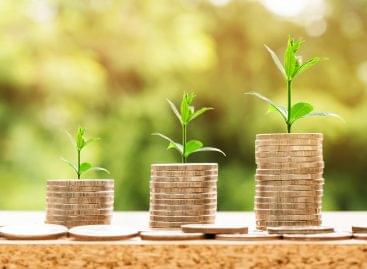Magazine: The world has turned upside down: How has the pandemic affected consumer behaviour?
The impact of the coronavirus pandemic has been different on different types of retailers. Obviously the operators of physical stores suffered a drastic sales loss, while those with an online shop (too) saw their sales skyrocket. For the latter, it was the disturbances in the supply chain that caused problems. In these conditions, when serious problems and new opportunities have occurred at the same time, KPMG defined five areas where development is necessary for retailers if they want to stay in the game in the long run. The areas where improvement needs to be made are: 1. omnichannel marketing and establishing digital retail capacities, 2. improving physical stores and offering personalised shopping experience in these, 3. speeding up the integration of different store formats, 4. bettering the supply chain network and ensuring that there are more than two suppliers for each product, 5. investing in digitalisation and taking steps in the direction of automation and AI technology.

The pandemic has heavily impacted consumers’ eating habits, too

Supply chains were seriously tested, and consumers worldwide perceive brands and products differently
More than half of retailers have been struggling with not having access to their stocks. According to a survey Squire Patton Boggs conducted together with Retail Economics, 38 percent of retailers think the biggest threat is the pandemic lasting for a long time and losing customers because of this; 31 percent said they aren’t sure that the supply chain will be able to keep functioning. Eating habits have also changed very much due to COVID-19, as most people are now cooking at home, using the ingredients they have purchased online. Euromonitor International says that because of the transformed shopping habits, in the short term (first two quarters of 2020) more consumers are buying online, in the medium term (second two quarters of 2020) online FMCG buying will remain important and even if restaurants open, people will cook at home more often than before; in the long term (from 2021) consumer spending will lose energy and food buying will be influenced by the price of products the most – this means that discounters will be the great winner of this period; online grocery shopping will become widespread.
How should brands react to the changes in consumption habits and the world around us? Ipsos explained: when people are doing their usual routine things, they feel safe and making decisions are relatively easy. The coronavirus pandemic turned this good old, safe way of living upside down; suddenly everything has become incalculable, and consumers have adapted to this new situation by making completely different decisions than before. Consequently from now on, brand management must be done in a context that keeps changing. During the pandemic many companies have been unable to react to this new situation, e.g. dietary supplement and vitamin companies are scared to even mention the coronavirus because they want to avoid being viewed as they are trying to profit from the emergency situation. At the same time, brands can play a vital role in the lives of people in a period when many must start living differently to stay healthy.
Companies can influence the decision-making of consumer in many ways in this new situation, and the most important of these is being present and establishing ties with consumers. It might be tempting for firms to lie low and wait until the pandemic ends. But the coronavirus has generated the rare situation when companies have excellent chances for earning the trust of consumers, with their stable presence and by offering relevant values in an uncertain situation. It is also key to be a reliable source and to make a positive impression. A good example is Lush, which urges British consumers to enter its stores just for washing their hands. Understanding and strengthening social norms can also serve as superb brand-building tools; adapting to the ‘new normal’ is a perfect opportunity for companies to increase awareness and customer loyalty – Netflix, Amazon and Lego are doing this very well.

Adapting to the “new normal” allows companies to increase awareness and customer loyalty
People are living very differently now than before COVID-19 – they are shopping differently and thinking differently than before the virus. All over the world consumers are looking at brands and products from a different perspective. A study by Accenture examined the long-term effects of the pandemic on consumer behaviour. They found that the virus us changing the industry in real time. According to the study, consumers are the most afraid of their financial situations taking a turn for the worst; their health is only the No.2 concern. E-commerce is booming like never before and it seems that things will stay this way after the end of the pandemic too. For instance, in the USA the subscribers of online order home delivery service Instacart got 20 times bigger in those states where the proportion of people who caught the coronavirus was the highest.

E-commerce is likely to remain important for customers also after the virus will be gone
The pandemic slowed down our lives and completely changed how our days look. We rely on the advantages offered by our modern technological devices more than ever before, in order to cope with isolation. Retailers need to make changes to keep in touch with consumers. The three most important steps are reacting to the changes, redefining the relationship with consumers and renewing the operating model. //
WFA: Is the coronavirus pandemic some kind of rehearsal for managing climate change?
Stephan Loerke, managing director of WFA is convinced that the compassion shown by companies will play an important role in leaving the current crisis behind and facing the biggest challenge of them all: climate change and environmental sustainability. A study conducted in 12 countries about brands’ role in managing the crisis has found: 62 percent of consumers think their country won’t be able to cope with the crisis if the different brands don’t help them. //
IMF says the Asian economy might get stuck
A forecast by the International Monetary Fund (IMF) says: for the first time in 60 years the economic growth will come to a halt in Asia because the coronavirus pandemic hit the services sector and the region’s export markets very hard. The Chinese growth can be 1.2 percent this year – originally it was supposed to be 6 percent. It is very probable that Australia will fall into a big recession, together with those countries in South East Asia that depend heavily on trading with China. //
Mastercard: This is how online retail sales accelerated
In April 2020 more money was spent by shopping online than in any other way: 35 percent of Hungarians have never bought this much online before; 57 percent of Europeans said the same – reveals a 15-country Mastercard survey conducted in May 2020. The number of European consumers who are buying the most important products online increased by 36 percent.
The study revealed that 83 percent of Hungarians and 81 percent of European who are hunting for bargains in physical stores are spending hours finding the best offers online too. In Europe, 51 percent of new online shoppers stayed loyal to the stores they got to like in the past, and among Hungarian consumers, this proportion was 65 percent. //
Will next year be even more difficult?
According to the experts of JP Morgan, the Hungarian GDP may bounce back next year after this year’s plunge, but the budget deficit will hardly decrease and the euro will put great pressure on the forint – by early 2021 one euro is likely to cost 400 forints. Hungarian economic performance will drop 6.3 percent this year. JP Morgan predicts that 2021 will bring a 5.3-percent economic growth for the country. It is a little surprising that experts say the decline will be the biggest in Hungary in 2020 and the bounce back won’t be the strongest here, as the budget deficit will be 5.2 percent. //
Families have lunch together more often during the quarantine
Within the framework of the Nestlé Healthy Kids programme, the company conducted a survey on the eating habits of Hungarian families during the pandemic. This has found that there is more time for family meals, and in 50 percent of households, children do some of the kitchen work. During the quarantine, one-third of respondents have lunch with their family, and this has become the main meal of the day for them. Typically adults involve children in preparing the food – only 23 percent said they don’t do so.
Gábor Tompa, corporate communication and public affairs director of Nestlé told: those children who participate in cooking eat more fruits and vegetables, and they follow a more balanced diet. Nestlé does its best to educate parents and children about healthy eating on all platforms possible.

//
Related news
KPMG says companies should appoint a dedicated leader to lead AI transformation
There is no question that the application of advanced technologies,…
Read more >KPMG: Who is responsible for the application of artificial intelligence at your company?
There is no question that the application of advanced technologies,…
Read more >AI handbook for the communications industry to be published
Domestic trade organisations, including MAKSZ, MMSZ and MLE have teamed…
Read more >Related news
Anora Group’s expansion in the Baltic region
In order to strengthen its position in the Baltics, premium…
Read more >Prices rose by 3.7% in November
Following a 3.2% year-on-year increase in October, consumer prices in…
Read more >KSH: in November consumer prices exceeded the same monthly values of the previous year by 3.7 percent
In November, consumer prices exceeded those of a year earlier…
Read more >







